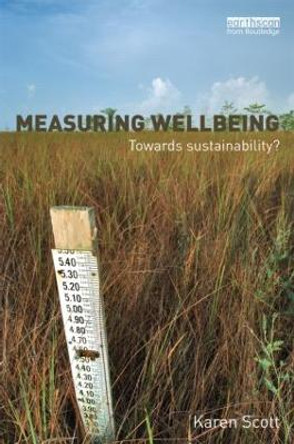Description
Work-Life Advantage analyses how employer-provision of 'family-friendly' working arrangements - designed to help workers better reconcile work, home and family - can also enhance firms' capacities for learning and innovation, in pursuit of long-term competitive advantage and socially inclusive growth.
- Brings together major debates in labour geography, feminist geography, and regional learning in novel ways, through a focus on the shifting boundaries between work, home, and family
- Addresses a major gap in the scholarly research surrounding the narrow 'business case' for work-life balance by developing a more socially progressive, workerist 'dual agenda'
- Challenges and disrupts masculinist assumptions of the "ideal worker" and the associated labour market marginalization of workers with significant home and family commitments
- Based on 10 years of research with over 300 IT workers and 150 IT firms in the UK and Ireland, with important insights for professional workers and knowledge-intensive companies around the world
About the Author
Al James is Reader in Economic Geography at Newcastle University, UK. His research interests include gendered labour geographies of work-life and socially inclusive growth; the regional cultural economy of learning and innovation; and the hybrid economic/development geographies of India's new service economy. His work has been funded by the UK's Economic and Social Research Council, Nuffield Foundation, Arts and Humanities Research Council and Isaac Newton Trust. He has published in a wide range of leading international journals, including Progress in Human Geography, Journal of Economic Geography, Regional Studies, Geoforum, Gender Work and Organization, Gender Place and Culture, Environment and Planning A and Development and Change. From 2008-2011, he was Secretary of the RGS-IBG's Economic Geography Research Group.
Reviews
Work-life advantage: sustaining
regional learning and innovation
Al James
Oxford: Wiley-Blackwell, 2017
ISBN: 978-1-118-94483-7 (paperback)
248 pp. Price: $39.95
ISBN: 978-1-118-94484-4 (hardback)
248 pp. Price: $94.95
This fascinating book offers a well-grounded
and clearly stated argument that work-life
balance is a crucial element in the mix of
factors that sustain regional learning and
innovation, making a significant contribution
to the literature that has burgeoned on this
topic in recent decades. In the process, it
develops a profound critique of the literature
on regional development as largely genderblind
and overly focused on production networks
to the neglect of processes of social
reproduction.
The book is based on extensive research
around Dublin, Ireland and Cambridge,
UK-including surveys of 150 employers,
over 60 interviews with IT professionals and
additional interviews with informants from
unions, development agencies and other organisations
before the crisis of 2008; supplemented
by online surveys with IT workers in
late 2008 and 2010. While the data were
gathered during a particular era of financial
boom and bust, they do not appear dated-at
least partly because the IT sector suffered less
than many others and more generally because
issues of gendering and work-life balance in IT
have been persistent across a variety of technology
and other business cycles.
This research is presented in three core
empirical chapters. The first of these presents
the core work processes in IT and the work-
life conflict they create, maintaining a commendable
focus on how the dynamic intersection
of work practices and gendered meanings
of work create varying challenges at different
times. The second empirical chapter focuses
more closely on policies and practices designed
to reduce work-life conflict within firms.
Nicely weaving together statistical and interview
data, the chapter assesses the 'mutual
gains' for firms and workers of various initiatives,
finding that practices that workers particularly
value (e.g. working from home,
reduced hours) also provide benefits to firms
of more diverse workforces, less fatigue and
increased productivity.
Perhaps, the most distinctive contribution
of the book is in the final empirical chapter
that extends this analysis to inter-firm relations
and regional processes. Part of the
analysis consists of a critique of the dominant
understandings of 'zero drag' regional labour
mobility as a vehicle of learning and innovation.
However, James put his data to good
use to go further and document how the search
for work-life balance is a major motivating
factor in labour mobility and how that mobility
is most constrained for the women workers
who are in greatest need of its potential
benefits. Again, firms and regional economies
as well as workers would benefit from worklife
friendly mobility.
This is an excellent book. It is clearly
written and engaging with a commendable
mix of empirical rigour and detail, passion for
the issues at hand and a commitment to the
importance of tackling them based on careful
research. The focus on 'mutual gains' proves
to be very useful because James examines the
dynamics of actual and potential gains in
detail rather than just relying on the phrase as
a slogan. The book goes well beyond the point
that there are quite generalised benefits for
firms to outline the various benefits and the
different conditions under which they arise-
as well as some potential benefits that are only
rarely realised.
The book also opens up a range of questions
that it doesn't quite answer. While the
focus on work-life balance is an advantage, in
that it provides clear links to organisational
choices and policy relevant issues, a more
sustained reconstruction of regional learning
theories at the end of the book would have
further augmented the findings. The implications
of the analysis for this literature could
The Author(s) (2019). Published by Oxford University Press. All rights reserved. For permissions, please email: journals.permissions@oup.com
Journal of Economic Geography 19 (2019) pp. 539-540 doi:10.1093/jeg/lbz005
Advance Access Published on 26 February 2019
Downloaded from https://academic.oup.com/joeg/article-abstract/19/2/539/5365501 by University of Sheffield user on 07 June 2019
be taken even further. To what extent are
inter-personal networks between partner companies,
for example, drivers of an 'always on'
culture?
More attention could also have been paid to
the occupational and organisational difference in
the workers' settings, disaggregating the categories
of 'worker' and 'firm'. While the distinct
focus on intra- and inter-firm processes yielded
rich insights, this raised the question of how firms
interacted with their broader regional environment
and how this shaped work-life balance.
The enduring puzzle of unrealised mutual gains
remains-if there are gains to be made by firms
(of which they are somewhat aware), then why
don't they act to take advantage of them?
Critically, perhaps the solutions as well as some
of the problems lie at the regional level. If many
workers are partly motivated by the search for
work work-life balance friendly employers but
employers are still not responding in large
numbers to these 'market signals', then collective
action at the regional level will be critical. Despite
the rhetorical commitment to limitless growth,
ICT firms may be willing to sacrifice a degree of
growth to forego disruption of gendered practices.
While the book touches on these issues,
there is much more to be said (as James notes).
James ends the book on a number of
potential extensions of this work, rightly
recognising some limits of an exclusively
regional focus. Some extensions refine the
focus on production and labour networks
through a greater focus on inter-firm networks
beyond the region-particularly because these
dynamic regions are as global as they are local.
How do these inter-regional ties shape firm
capacities within regions and how do work-life
balance practices diffuse across these transnational
organisational networks? Another set
of extensions beyond the regional focus, also
noted by James, are in the direction of
comparative analysis of different regions and
analysis of how they are shaped by their
political and institutional environments. The
book touches on the comparative differences
between Ireland and the UK without fully
analysing them.
This is an informative and insightful book.
For those interested in gendering of economic
life, this book will be a welcome addition to
their stock of knowledge, adding the region to
the list of deeply profoundly gendered economic
institutions. For those whose focus is on
regional development but who have paid little
attention to gender, this is a must read.
Sean O Riain
Department of Sociology, National University
of Ireland Maynooth
sean.oriain@mu.ie
540 . Book Reviews
Downloaded from https://academic.oup.com/joeg/article-abstract/19/2/539/5365501 by University of Sheffield user on 07 June 2019
Book Information
ISBN 9781118944837
Author Al James
Format Paperback
Page Count 248
Imprint Wiley-Blackwell
Publisher John Wiley and Sons Ltd
Weight(grams) 318g
Dimensions(mm) 229mm * 152mm * 13mm










